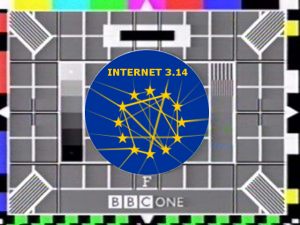Brussels, March 6th − La Quadrature du Net publishes a document, drafted by the British Government, with amendments to the telecoms package1http://www.laquadrature.net/files/UK_PROPOSED_AMENDMENTS_on_net_neutrality_DRAFT_20090223_print.pdf.. This proposal would turn the Internet into a Cable-TV network. First, there is a proposal to introduce conditions of access, alluding to the Conditional Access Directive2http://eur-lex.europa.eu/LexUriServ/LexUriServ.do?uri=CELEX:31998L0084:EN:HTML. regulating that very market. It is a subcription-TV-like concept reading through the lines. Second, there is language which overrides the end-to-end principle of the Internet. The idea behind it is that the Internet provider shall be allowed to limit the number of websites users can access, in exchange for a lower fee. Who wants telcos-controlled sub-Internet in Europe?

The national regulator will have the role of endorsing this new business model rather than protecting user’s fundamental rights to information, culture and public services, as laid out in the UK amended article 8(4)(g):
NRAs shall promote the interests of the citizens of the European Union by for example “applying the principle that
end-users should be ablethere should be transparency of conditions under which services are provided, including information on the conditions oftoaccess to and/or use ofand distribute information or runapplications and services, and of any traffic management policiesof their choice”
“In a context where markets like mobile telecommunication or entertainment industries, merging with telecommunication operators, are controlled by oligopolies, relying on the only information of the consumer leaves the consumer without any choice. Competition law would be the only remedy, and they proved to be totally inefficient against Microsoft or mobile operators cartels. Therefore, it is essential to define a positive guarantee of access to services without discrimination.” comments Jérémie Zimmermann, co-founder of La Quadrature du Net.
This preposterous proposal has already been included in the Council’s compromise (pp 32-33)3http://www.laquadrature.net/files/DS177_9_2009_02_27_print.pdf. which will be discussed behind closed doors next week.
“The way these amendments are presented is deceptive: they are introduced as an information for consumer, while the point is to remove almost guarantee of access to Internet services. This is clearly a manoeuvre to break the balance of the text. MEPs must strongly reject it.”, concludes Zimmermann.
References

